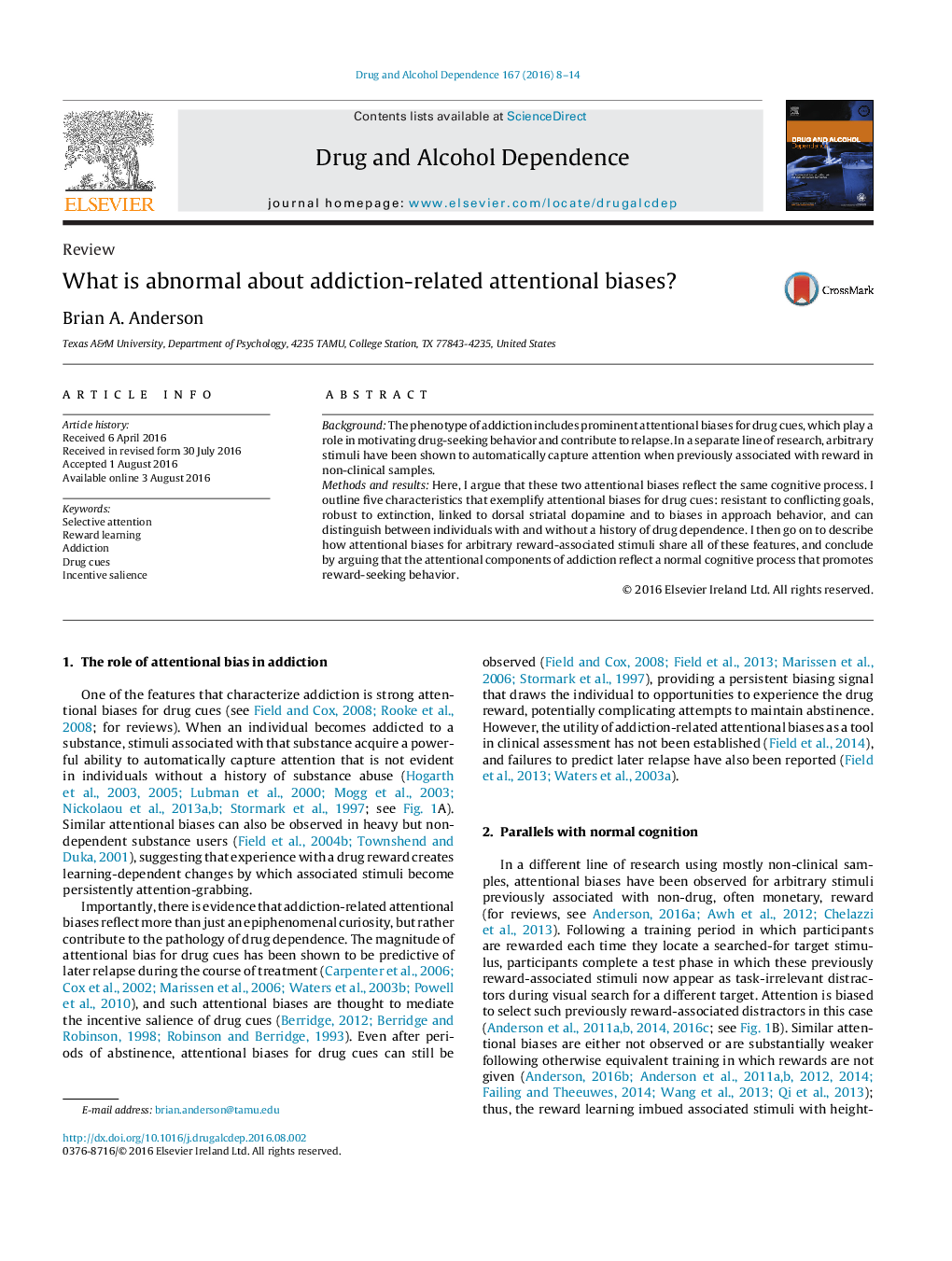| Article ID | Journal | Published Year | Pages | File Type |
|---|---|---|---|---|
| 5120488 | Drug and Alcohol Dependence | 2016 | 7 Pages |
â¢Drug cues automatically capture attention in drug-dependent patients.â¢Phenotypically similar biases can be observed for arbitrary reward cues.â¢It is argued that these two biases reflect the same underlying cognitive process.â¢Addiction-related attentional biases are not a unique consequence of substance abuse.â¢Nor are addiction-related biases the result of a process that is itself pathological.
BackgroundThe phenotype of addiction includes prominent attentional biases for drug cues, which play a role in motivating drug-seeking behavior and contribute to relapse. In a separate line of research, arbitrary stimuli have been shown to automatically capture attention when previously associated with reward in non-clinical samples.Methods and resultsHere, I argue that these two attentional biases reflect the same cognitive process. I outline five characteristics that exemplify attentional biases for drug cues: resistant to conflicting goals, robust to extinction, linked to dorsal striatal dopamine and to biases in approach behavior, and can distinguish between individuals with and without a history of drug dependence. I then go on to describe how attentional biases for arbitrary reward-associated stimuli share all of these features, and conclude by arguing that the attentional components of addiction reflect a normal cognitive process that promotes reward-seeking behavior.
